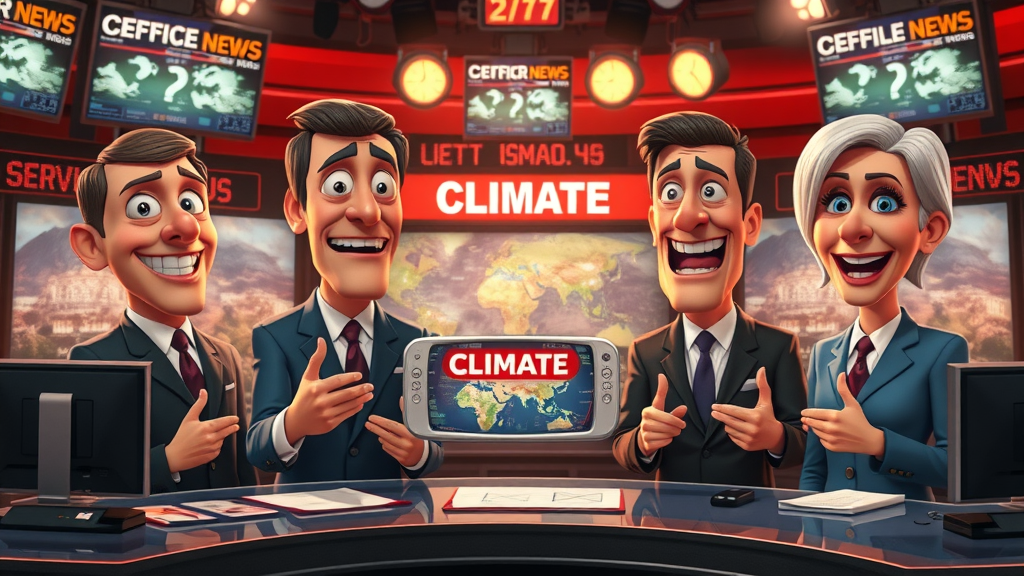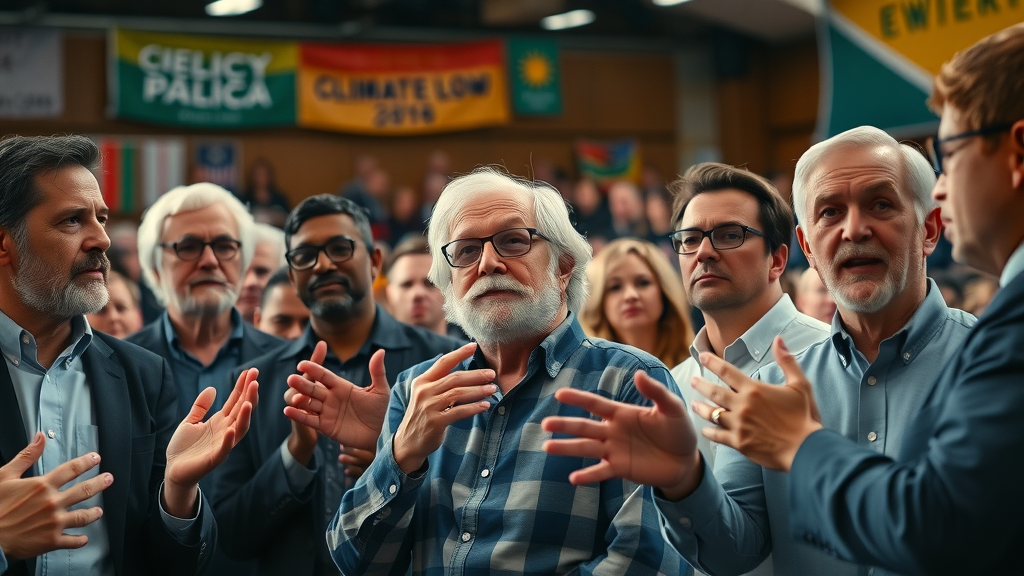Did you know: Some economists argue that excessive climate policies have cost more lives via fuel poverty than climate change itself. In an era where climate change dominates headlines, it’s easy to get caught up in alarming narratives. But is our response to global warming risking more than it saves? This article dives deep into Lord Matthew Ridley’s controversial perspective to examine the true impact of climate fanaticism on society, economy, and policy—and whether, as some argue, it might be “killing us” in unexpected ways.

A Shocking Truth: Rethinking Climate Fanaticism Today
When contemplating the question, is climate fanaticism really killing us? | lord matthew ridley offers a bold challenge to mainstream climate narratives. According to the house of lords hereditary peer and well-known science writer, much of what the public hears about climate change is driven not just by science, but also by sensationalist rhetoric. While acknowledging that greenhouse gas emissions and fossil fuel use have changed the environment, Ridley believes that panic, rather than prudent action, currently dominates the climate change debate.
Ridley’s arguments echo growing concerns over the economic, social, and even health costs of climate alarmism. He points out that rapid, poorly thought-out policies can lead to energy insecurity, loss of industry jobs, and even documented health crises due to fuel poverty—especially across the european union and united states. Are society and policymakers overreacting? This is the question at the core of this discussion, and it’s one we’ll tackle head-on in the following analysis.
Statistics and Unconventional Realities Surrounding Climate Change
A deep look at climate data reveals nuances rarely covered in mainstream media. For instance, while the average global temperature rise since the industrial revolution is just over 1°C, climate-related deaths due to weather extremes have fallen dramatically over the last two decades according to some studies (et al). Matt Ridley highlights such figures to illustrate that climate alarmism often overshadows meaningful improvements brought by adaptation and technology, such as enhanced flood defenses and more resilient agriculture. He argues that climate fanaticism can cause more economic harm than the direct impacts of climate shifts, especially when policies are based on worst-case scenarios rather than probable outcomes.
This position remains controversial, especially as many climate scientists and activists emphasize the urgency of reducing carbon dioxide and greenhouse gas levels. Nevertheless, Ridley insists that a balanced, data-driven approach will help societies adapt better than the current “panic-driven” state. He urges the public and policy makers to look past the headlines and engage critically with the evidence—distinguishing between what climate science proves and what is projected under particular models.
Understanding the nuances between genuine scientific debate and the spread of misleading information is crucial in this context. For a deeper dive into how climate disinformation shapes public perception and policy, explore key insights and strategies for addressing climate disinformation and fostering more informed dialogue.

What You'll Learn: Is Climate Fanaticism Really Killing Us? | Lord Matthew Ridley
- The definition and nuances of climate fanaticism
- Lord Matthew Ridley’s position on climate change debate
- Societal and economic impacts of extreme climate rhetoric
- Key controversies surrounding climate change activism
- Balanced perspectives for policies and public action
The Origins of Climate Fanaticism: From Science to Sensationalism
Climate science journeyed from noble curiosity to contentious debate over centuries. In the early 20th century, climate scientists quietly tracked rising carbon dioxide levels and their implications. Public and political attention remained low until the late 1980s, when global summits and media coverage propelled climate change into the spotlight. What followed, according to critics like Matt Ridley, was an escalating spiral—from scientific discourse on climate sensitivity and gas emission impacts, to a climate “war” marked by doomsday headlines and aggressive activism.
As the topic became politicized, mainstream reporting shifted from nuanced reporting—think “the rational optimist” approach—to framing climate issues as existential threats. This process, Ridley argues, has fostered fanaticism: an environment where skepticism is vilified and alarm becomes virtue. The result? Sound science is often drowned out by sensationalist narratives, eroding the opportunity for reasoned discourse and leaving societies vulnerable to misguided or unsustainable policies.

How Did Climate Change Discourse Become So Polarized?
Polarization of the climate change debate stems from a complex interplay between politics, economics, and the media. Initially, scientists like James Hansen and IPCC authors presented measured warnings; over time, however, policymakers and news outlets began amplifying worst-case projections. Campaigners pushed dire narratives, while contrarian voices like Matt Ridley were labeled “deniers”—all but eliminating middle ground.
This landscape, Matt Ridley asserts, discourages open scientific debate. Instead, it rewards certainty and ideological purity over empirical doubt, a trend evident in both old and new york media, as well as parliamentary debate. Is the result a more informed public? Ridley thinks not: rather, he warns, “we have moved from science to identity politics.” In this new paradigm, facts become tools for tribalism and disorder, and consensus gives way to self-reinforcing echo chambers. The polarization, then, is not just about science; it’s about societal trust in information itself.
Profiling Lord Matthew Ridley: Background and Credentials
Lord Matthew White Ridley—Viscount Ridley—is a hereditary peer of the House of Lords, author, science writer, and former chairman of the infamous bank Northern Rock. Renowned for his books on science and economics, Ridley is acknowledged for promoting “rational optimism.” He has been a prominent voice in the energy and climate debate for over two decades, advocating that society should trust innovation and human resilience alongside measured environmental stewardship.
Ridley’s critics point to his links with the fossil fuel industry, but his supporters argue that his skepticism provides a much-needed counterweight to uncritical climate alarm. In the House of Lords and as a columnist, he persists in challenging policies he believes are overreactions—citing, for example, the Northern Rock financial crisis as a parable about the cost of groupthink and policy panics. Whether one agrees or not, Ridley’s background positions him as an informed, if contentious, voice in climate science discourse.

The Arguments: Is Climate Fanaticism Really Killing Us? | Lord Matthew Ridley
The essence of Ridley’s challenge boils down to three elements: data interpretation, policy consequence, and human well-being. Does the feverish call to action on climate overshadow quieter, data-backed advances in technology and adaptation? Ridley contends that “fanaticism is overkill; doubt is sanity,” prompting questions about the true cost of panic.
This balanced skepticism stands in stark contrast to activists arguing for immediate fossil fuel bans and radical energy transitions, often regardless of economic or social consequences. Drawing on historical analogies and modern examples, Lord Ridley insists that overly zealous policies—while well intentioned—may cause serious, even deadly, collateral damage not only to economies but also to vulnerable populations.
Matt Ridley and Climate Change: Dissent, Data, and Disputation
Ridley’s views on climate science have sparked intense debate. As both a science writer and hereditary peer, he stresses the difference between current, measured realities and dire predictions. He routinely critiques forecasts of severe sea level rise and runaway warming, pointing to lower-than-predicted temperature rise observed by satellites and surface readings over the past two decades. For Ridley, the problem is not with acknowledging climate change, but with projecting certainty onto high-impact, unlikely scenarios—he calls for skepticism and further questioning.
A defining feature of Ridley’s dissent is his reliance on long-term trends and adaptation strategies. He concedes that greenhouse gas emissions should be reduced, yet warns that abrupt policy shifts could trigger negative economic feedback loops. These can lead to energy poverty or job losses—real impacts on human beings often lost in the debate. “Fanaticism,” he warns, “may bring more harm than the risks it tries to avoid.”
“Fanaticism is overkill; doubt is sanity.” — Lord Matthew Ridley
How Climate Fanaticism Influences Policy, Society, and Business
- Impact on legislative action
- Economic ripple effects
- Public fear and misinformation
Climate fanaticism, Ridley contends, has reshaped the policy landscape. Rapid, ideological legislation—sometimes inspired by activists—often precedes robust cost-benefit analysis. In the European Union, for example, abrupt decarbonization mandates have hiked energy costs, disproportionately affecting low-income households and leading to fuel poverty. Businesses, too, face uncertainty, with shifting regulations discouraging long-term investment and innovation.
Meanwhile, the culture of alarmism breeds fear and misinformation. According to Ridley, “public anxiety is not always based on proportional threats.” The media, eager for clicks, sometimes amplify worst-case scenarios at the expense of important nuance, a process not lost on the House of Lords. Education, too, can suffer—students may learn hopelessness, not solutions. In this climate, measured policy and rational optimism are easily drowned out.

EF | 1 | 121: The Intersection of Economic Fallout and Climate Policy
The term “EF | 1 | 121” refers to policy models estimating economic consequences of aggressive climate action. According to some analyses, strong greenhouse gas emission controls—without accounting for cost or pace—can slow economic growth, triggering unemployment and reduced healthcare spending. Ridley often uses historical parallels, such as the UK’s energy crisis and even the bank northern rock collapse, to show how overreactions can spiral into real-world suffering.
Supporters of moderate climate policy argue for a stepwise approach that balances energy transition with economic stability. Data from the International Energy Agency and United Nations suggest that rushed decarbonization carries risks, just as delayed action does. Ridley, with his background in the House of Lords, calls for pragmatic, flexible policy—one anchored in data, not dogma. This ensures society benefits from climate action without sacrificing prosperity or human health.
| Policy Approach | Short-Term Social Impact | Economic Outcome | Long-Term Environmental Result |
|---|---|---|---|
| Moderate, Adaptive Policy | Steady transition, fewer disruptions | Gradual job evolution; stable prices | Sustained emissions reduction, adaptation |
| Fanatical, Rapid Policy | Job loss, energy insecurity, public anxiety | Market instability, fuel poverty, inflation | Potential for faster emission cuts—but social cost risk |
Lord Ridley’s Critique: Risk, Prediction, and the Cost of Panicking
Ridley’s core thesis is “panic costs lives.” In his view, the media’s portrayal of climate as a constant emergency creates a risk culture prone to poor decisions. By conflating prediction with certainty, professionals and the public alike may fail to invest in adaptation and realistic mitigation—sometimes compounding risks in the process.
These concerns are most pronounced when the media message is urgent and repetitive. Ridley’s stance: Misrepresenting threats not only distorts public understanding but motivates policies that may ultimately do more harm than good.
Media Messaging: Is the Threat of Climate Change Misrepresented?
A vital element of Lord Ridley’s argument is the media’s role in shaping, and sometimes distorting, climate risk perception. Sensational reporting, he says, leverages every heatwave or hurricane as confirmation of the worst-case scenario—regardless of longer-term trends. This selective focus neglects stories of human adaptation or technological progress. In Ridley’s assessment, responsible science reporting calls for proportion and context.
This “headline-driven” culture encourages politicians to announce bold, dramatic policy targets. Yet, as climate scientists often point out, the cost of meeting rapid, absolute targets may divert crucial resources from adaptation and long-term mitigation. For Ridley, fostering a rational debate means restoring trust in science and avoiding the pitfall of constant crisis framing.

Northern Rock Analogy: What Financial Panic Can Teach Us About Climate Panic
The collapse of bank northern rock in 2007 is a favorite analogy for Ridley. He draws a parallel between financial systems and climate policy: “Overreaction can be as harmful as inaction.” When customers panicked, a solvent bank became insolvent overnight due to a loss of trust—the same “herd” psychology he observes in climate policy circles.
Just as northern rock was a self-fulfilling prophecy of doom, Ridley argues that climate fanaticism risks triggering policy disasters—a rush to divest, overly ambitious decarbonization deadlines, and regulatory shocks that can destabilize economic and political systems. Prudence and caution, he advises, are virtues not only in finance but in the climate debate too.
“Overreaction can be as harmful as inaction.”
Climate Alarmism and Public Health: Correlations and Causation
There is growing evidence linking climate alarmism with negative public health outcomes. Ridley points to studies showing that excessive messaging about catastrophic climate change can trigger anxiety, depression, and “eco-paralysis,” especially in young people. Reports show that rates of climate-related anxiety have spiked in the last two decades, with many suffering more from fear than from real-world effects of climate events.
Additionally, abrupt policy changes—such as banning fossil fuels without reliable alternatives—may result in prolonged exposure to cold, poor nutrition, and other social determinants of ill health. Ridley’s message: Human well-being must remain central when designing climate policy, and fear-based activism should not cloud our judgment.

Matt Ridley’s Solutions to Climate Hysteria
In confronting the problem of climate fanaticism, Lord Matthew Ridley offers pragmatic, science-based solutions. His recommendations focus not on denying climate change, but on improving the way societies handle climate information, debate, and policy formation for a healthier, more productive future.
Ridley advocates for nuanced debate, technology-driven adaptation, and above all, transparent science communication—a recipe, he argues, for both a cooler planet and a calmer public.
Promoting Balanced Science Communication
Central to Ridley’s approach is the importance of balanced science communication. Rather than presenting every new finding as urgent or catastrophic, he urges media and policymakers to provide nuanced interpretation of climate data—with full context and honest uncertainty. He calls on climate scientists and science writers to speak in probabilities rather than certainties, restoring public trust in climate discourse.
Such practices, he argues, allow citizens, businesses, and lawmakers to make informed, proportionate adaptations. Open debate, rather than messaging “lockdown,” is crucial for innovation and robust problem-solving in the face of an evolving climate.

EF | 1 | 121: Alternatives to Fanatic Urgency in Policy
Instead of “all-or-nothing” decarbonization, Ridley recommends incremental, data-driven policies. These approaches, reflected in some models labeled “EF | 1 | 121,” seek to avoid both the pitfalls of complacency and the risks of panic. Gradual emissions reduction, investment in new technology, and support for adaptive infrastructure are at the heart of this pragmatic path.
“There is room for caution without catastrophe,” Ridley insists. By combining green innovation with flexibility, policies can avoid triggering mass unemployment or energy crises—all while steadily advancing the core goals of climate mitigation and adaptation.
“There is room for caution without catastrophe.”
Collaboration Over Confrontation: Matt Ridley’s Preferred Approach
- Open scientific debate
- Inclusive and measured policy discussions
- Accountability in advocacy
Ridley’s vision eschews tribalism in favor of open dialogue and shared solutions. He is a keen proponent of broad, inclusive policy debates involving experts, stakeholders, and laypersons alike. This collaborative ethos not only improves public trust, it also encourages robust innovation—a point underscored in his books and speeches.
He further emphasizes accountability in policy advocacy: claims should be evidence-based, and policymakers should reconsider tactics that fail to deliver social or environmental benefits. In Ridley’s words, “only collaboration and accountability will keep climate action rational, compassionate, and effective.”
Case Study Table: When Climate Fanaticism Goes Too Far
| Case Study | Policy or Event | Unintended Outcome | Lesson Learned |
|---|---|---|---|
| UK Diesel Mandate | Heavy promotion of diesel vehicles (to reduce CO2 emissions) | Air quality crisis, public health issues | Short-term fixes can cause new problems |
| California Blackouts | Rapid grid decarbonization, early nuclear closures | Energy shortages, rolling blackouts | Energy security needs careful planning |
| Biofuel Boom | Government subsidies for crop-based biofuels | Food price spikes, deforestation | Environment and economy are linked |
Criticisms of Lord Matthew Ridley: Fair or Flawed?
Ridley’s ideas ignite fierce debate. Detractors argue that his criticism of climate policies reflects personal interests—highlighting his ties with the fossil fuel sector and his past at Northern Rock. Others believe that his skepticism, while valuable, downplays legitimate climate risks by focusing too heavily on alarmism. Meanwhile, his insistence on open debate resonates with many policymakers, scientists, and concerned citizens who seek more balanced climate action.
Ultimately, the fairness of these criticisms depends on one’s perspective: advocates for urgent action view Ridley as a risk, while pragmatists see him as a necessary counterweight in a complex debate.

Addressing Counterarguments: Where Does the Evidence Stand?
Critics of Lord Ridley often cite mainstream projections of global warming, arguing that even small odds of catastrophic change warrant urgent action. While acknowledging uncertainty, they argue that the cost of inaction could far outweigh the risks posed by aggressive policy. Ridley counters by drawing on historical and empirical data—pointing out where alarmism has misallocated resources or fostered public distrust. The evidence, as always, is mixed: both sides draw from reputable climate scientists and competing models.
The key, many experts suggest, is to maintain open lines of evidence and dialogue. Echoing Ridley’s own approach, progress requires acknowledging doubt, adapting when necessary, and continuously updating policy as new data emerges.
The Importance of Dissent in Advancing Science
History shows that dissent is critical for progress in science and policy. According to Ridley (and many historians of science), breakthroughs—whether in medicine, economics, or climate science—often emerge from challenging orthodoxy. Suppressing skepticism threatens innovation and, ironically, may blind societies to true threats. Dissenters, from Galileo to modern day climate modelers, keep debate honest and ensure policy keeps pace with reality.
Embracing a plurality of views isn’t just good for science; it is essential for democracy. Ridley’s championing of “rational optimism” reminds us that solutions—whether to climate, health, or finance—are most lasting when built on robust, inclusive debate.
People Also Ask: Related Questions on Climate Fanaticism
Is climate fanaticism different from climate activism?
Yes, there is a meaningful distinction between climate activism and climate fanaticism. Climate activism advocates for awareness and pragmatic policy, often supporting evidence-based mitigation efforts. Fanaticism, as Lord Ridley points out, replaces debate with dogma—escalating alarm to a level that may suppress dissent and rational discussion. True activism sparks solutions; fanaticism often breeds polarization and fear.
Who is Lord Matthew Ridley and what is his view on climate change?
Lord Matthew Ridley, or Viscount Ridley, is a hereditary peer in the House of Lords, noted author and science writer. His perspective on climate change is nuanced: he recognizes manmade warming and supports emissions reduction but is critical of alarmist rhetoric and extreme policies. Ridley advocates “rational optimism,” open debate, and data-based adaptation, rather than panic-driven response.
What are the risks of extreme climate change rhetoric?
Extreme climate rhetoric risks creating public anxiety, economic turmoil, and policy overreach. According to Ridley and other critics, catastrophizing climate risks can divert attention from practical adaptation or mitigation strategies. Further, it can undermine trust in science and cause divisions between policymakers, businesses, and citizens—ultimately slowing constructive change.
Expert Opinions: Quotes from Matt Ridley and Critics
“You can be concerned about climate change without losing perspective.” — Matt Ridley
“Fanatic rhetoric can shut down real dialogue and innovation.”
Key Takeaways: Is Climate Fanaticism Really Killing Us?
- Excessive climate fanaticism can hinder rational policymaking
- Lord Matthew Ridley encourages measured responses over alarmism
- Nuanced debate is essential for effective climate action
Frequently Asked Questions (FAQs)
-
Has Matt Ridley changed his stance on climate change in recent years?
While Ridley’s caution has evolved as new data emerges, he remains an advocate for balanced, data-driven action rather than alarm or denial. -
How does climate fanaticism impact younger generations?
Excessive alarm can increase anxiety, depression, and hopelessness among youth. Advocates, Ridley included, encourage honest communication and empowerment. -
Are there alternative approaches to urgent climate action?
Yes, many experts—including Ridley—promote incremental, risk-managed policy over sweeping, disruptive mandates. -
What role does the media play in climate panic?
The media shapes perceptions. Sensational reporting may heighten panic; balanced coverage supports informed public debate.
Conclusion: Striking a Balance in the Climate Change Discourse
Striking a balance between informed action and rational optimism, as advocated by Lord Ridley, offers the best path forward in climate policy and public debate.
If you’re interested in exploring the broader societal impacts of climate change beyond policy debates, consider how environmental shifts are influencing global migration patterns. Understanding the connection between climate pressures and mass migration can provide a more comprehensive view of the real-world stakes involved. For a deeper perspective on this critical issue, discover how climate change is driving mass migration and what it means for our future. Expanding your knowledge in this area can help you anticipate emerging challenges and opportunities in a rapidly changing world.
Get Involved: Share Your Expert Insight
If you would like us to interview you as a subject expert for your business or organisation, email ai@dylbo.com
Sources
- TED Talks – https://www.ted.com/talks/matt_ridley_when_ideas_have_sex
- The Guardian – https://www.theguardian.com/environment/climate-change
- IPCC – https://www.ipcc.ch/
- International Energy Agency – https://www.iea.org/
- Rational Optimist (Matt Ridley) – https://www.rationaloptimist.com/
In his article “Is Climate Fanaticism Really Killing Us? Lord Matthew Ridley’s Perspective,” the author explores Lord Ridley’s critique of extreme climate change rhetoric and its societal impacts. For a deeper understanding of Ridley’s views, consider listening to the podcast episode “Why Climate Fanaticism Is Killing Us | Lord Matthew Ridley,” where he discusses the consequences of climate alarmism on economic and social progress. Additionally, Ridley’s personal account, “My life as a climate lukewarmer,” provides insight into his journey from climate alarmism to a more skeptical stance, highlighting his concerns about the politicization of climate science. These resources offer valuable perspectives for those interested in the complexities of climate discourse and policy.
 Add Row
Add Row  Add
Add 










Write A Comment